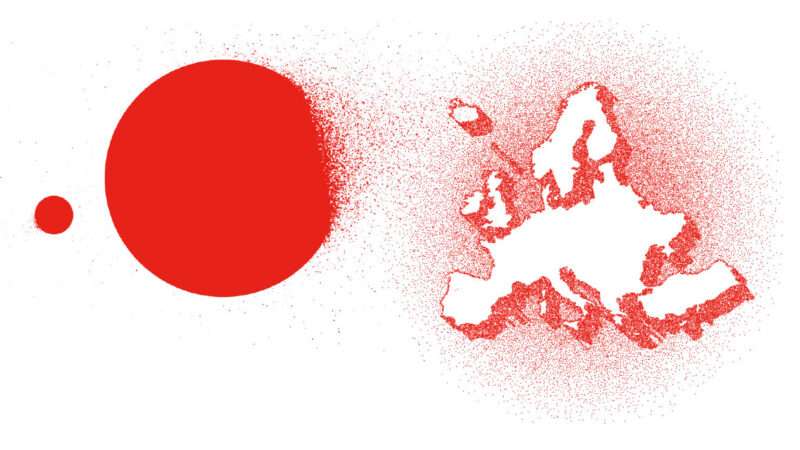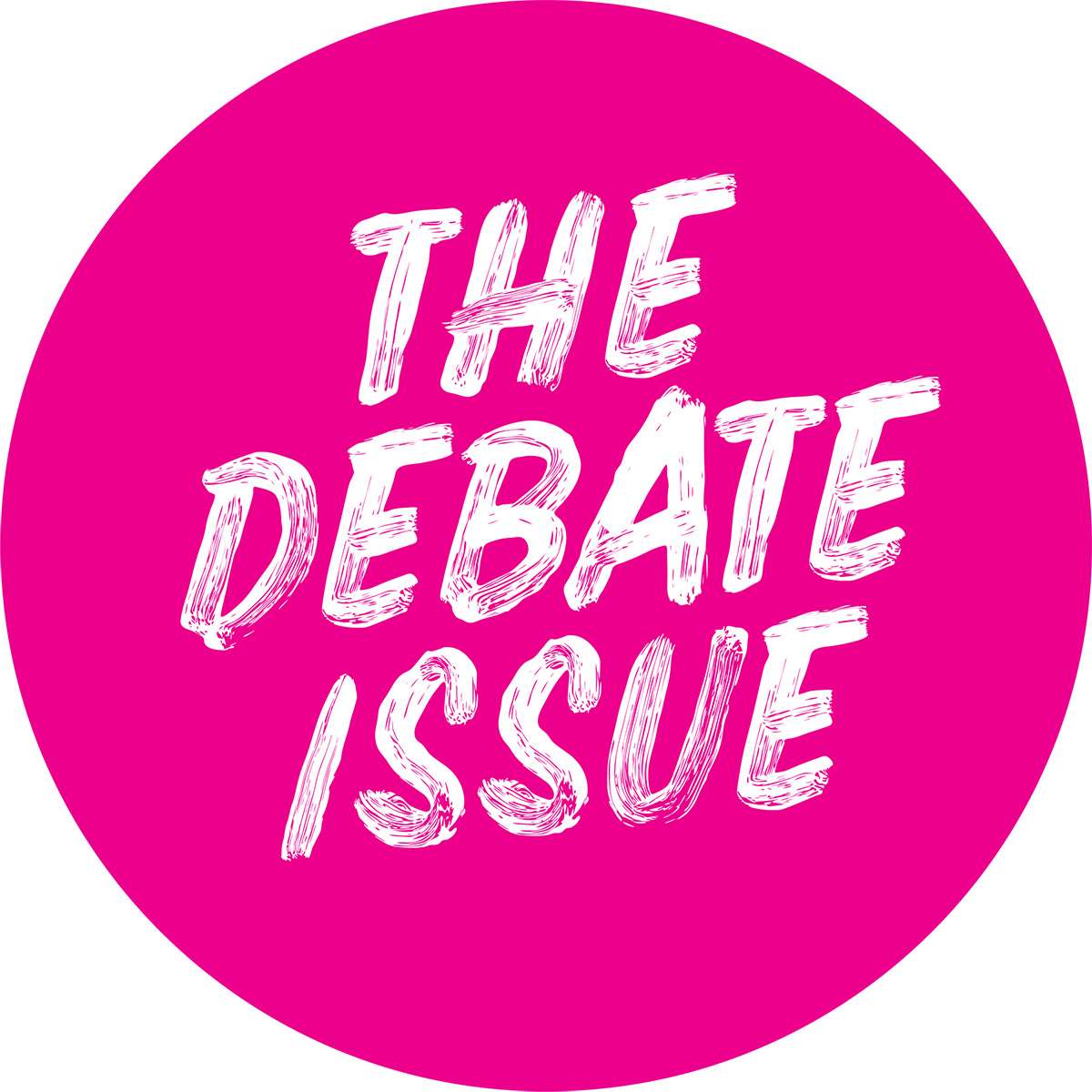
Small States Are Best, and the E.U. Is Huge
Affirmative: Daniel Hannan

Small is beautiful. That, in a nutshell, is the case against the European Union. If you want to make the same point in more grandiose language, you can quote Aristotle: "To the size of a state there is a limit, as there is to plants, animals and instruments, none of which can retain their natural facility when too large."
Here's one practical test of his thesis. Which states or territories have the highest gross domestic product (GDP) per head? Depending on whose measure we use, the top five are Qatar, Macao, Luxembourg, Singapore, and Brunei (according to Worldometer); Monaco, Liechtenstein, the Isle of Man, Bermuda, and the Cayman Islands (according to the International Monetary Fund); or the Isle of Man, the Channel Islands, the Faroe Islands, the U.S. Virgin Islands, and Guam (according to the United Nations). Notice what they all have in common?
Europhiles might object that the E.U. is not a state, and that the very presence of Luxembourg in one of those tables suggests that it can't be doing too badly. But look at the direction of travel. At first, the European Economic Community (EEC)—the clue was in the name—could reasonably be described as an international association, focused on eliminating trade barriers among its members. True, it did so at the expense of trade with nonmembers. Unlike NAFTA or the European Free Trade Association (EFTA), the EEC was not a free trade area but a customs union, controlling all commerce on behalf of its members and artificially redirecting trade away from the rest of the world. Still, it was a club of nations rather than a superstate.
That changed when the Maastricht Treaty came into force in 1993. Suddenly, Brussels had a hand in almost every field of government activity: foreign policy, criminal justice, the environment, culture, immigration, defense. It was now that, in recognition of its vastly expanded ambitions, it stopped being the EEC and became the European Union.
A big polity can prosper, but only if it behaves like a confederation of statelets. The supreme exemplar is the U.S., the only large nation that gets anywhere near the top of those GDP rankings (coming in, respectively, at 7, 7, and 10 in the three lists cited above). American states and counties have powers that exceed those of any local authorities in Europe—except in Switzerland, which, largely because it wants to retain its devolved political system, has declined to join the European Union. Delaware, unlike Denmark, can set its own sales taxes. Pennsylvania, unlike Poland, can decide whether to allow capital punishment.
Don't get me wrong, I'm not wild about the direction the U.S. has been taking either. Power is shifting from the states to Washington, D.C., from the legislature to the executive, and, indeed, from the citizen to the government. But the U.S. is starting from a much better place. It was designed according to Jeffersonian principles. Power was dispersed, decentralized, and democratized.
The E.U., by contrast, was designed to weld nations into a supranational bloc. The first article of its founding charter, the Treaty of Rome, commits its members to an "ever-closer union." The European Court of Justice has repeatedly cited that clause to justify power grabs that go beyond anything foreseen by the treaties.
The U.S. Constitution is an imperfect document, but, as P.J. O'Rourke said, it's better than what you've got now. The E.U. treaties, by contrast, don't even pretend to restrict state power. Where the Declaration of Independence promises life, liberty, and the pursuit of happiness, its European equivalent, the Charter of Fundamental Rights, entitles people to "strike action," "affordable housing," and "free healthcare."
True, nation-states can be as intrusive and dirigiste as the European Union. But the aggregate picture is clear. The cheapest and most accountable administrations are those closest to the people. Local government is (not always, but on average) more efficient than national government, national government more efficient than supranational government.
In theory, one could imagine an E.U. that did not concern itself with behind-border issues—an E.U., in short, more like EFTA or NAFTA. But that is not what we have. The real E.U. has policies on every aspect of life, from permissible noise levels to the status of disabled people, from the rights of asylum seekers to space exploration. No wonder most British libertarians voted to leave it.
The E.U. Is Better Than the Realistic Alternatives
Negative: Dalibor Rohac
Many valid criticisms can be addressed at the European Union. The Brussels machinery is bureaucratic and largely insulated from accountability. When it comes to new markets and new technologies, European institutions regulate first and ask questions later. The E.U. controls a sizable budget, part of it wasteful—including generous agricultural subsidies and transfer programs that have entrenched aspiring autocrats in countries such as Hungary.
Yet the E.U.'s existence is infinitely preferable to its absence. It is a prime example of the "nirvana fallacy" to compare the E.U. and its flaws to a libertarian ideal of free trade and unregulated markets. The relevant comparison is between the E.U. and the politically plausible alternatives.
Those alternatives almost certainly involve protectionism, heavy-handed industrial policy and planning, or state aid to politically connected companies—and they could involve ethnic conflict and war. If it weren't for the pressure of the European Commission in the late 1980s, it is fanciful to think that Italy or France would have just given up state ownership of utilities, banks, or their industrial giants.
Conversely, the United Kingdom has not become a free market paradise after leaving the European Union. Quite the opposite. The U.K. economy, already constrained by self-imposed "not in my backyard" (NIMBY) regulations, is being burdened by new barriers to cross-border commerce with continental Europe—hence the dismal growth record three years into leaving the bloc.
Again, the E.U.'s "single market" is far from perfect. It is effectively nonexistent in the area of services, for example. And in areas where it does work, it often goes hand in hand with harmonized European rules rather than with simple mutual recognition of national standards.
Yet the single market is a singular achievement. It is one thing to prescribe the free movement of goods, capital, and people within the continental United States under the auspices of a powerful federal government. It is quite another to arrive at such an outcome through the largely voluntary efforts of E.U. member states.
Could we imagine an alternative that would be superior, from a libertarian standpoint? Sure: Eliminate tariffs and embrace mutual recognition of national rules. But that's never going to happen. The experience with existing mutual recognition arrangements from around the world shows that under wide differences between regulatory regimes, mutual recognition is politically unsustainable.
In other words, the layer of E.U. rules is a price to pay for the absence of nontariff barriers. This is arguably not a very hefty price to pay, given that some E.U. countries (the Nordics, Baltics, the Netherlands) are among the most competitive economies around the world, and given that nonmembers have voluntarily embraced those rules (Norway) or are very keen to do so (Ukraine).
It is misleading to compare the E.U.'s single market with 19th century Europe, and not just because 19th century Europe did not have a modern regulatory state. The "first age of globalization" was driven more by improvements in transportation than by wise trade policy. If anything, the free trade system started gradually eroding in the 1870s before completely collapsing in World War I.
Contrary to conservative-nationalist folklore, the E.U. is not a nefarious top-down plot to subvert national sovereignty and self-governance. It is an imperfect compromise resulting from decadeslong efforts by democratically elected leaders, and it enjoys broad, consistent popular support. (Two-thirds of Europeans back it, according to a recent Eurobarometer poll.)
One can understand why Americans or Brits might look with suspicion at the E.U.'s convoluted decision making processes. Yet the E.U.'s odd architecture reflects something distinctly European—the uneasy tension between common cultural references and the sheer diversity of the continent. It is not a coincidence that for almost two millennia Europe saw a succession of weird, multilayered, quasi-federal structures of governance, from the Holy Roman Empire through leagues of city states to multinational "republics" such as the Polish-Lithuanian Commonwealth.
England aside, the "sovereign" nation-state is a late–19th century addition to Europe's political realities. And needless to say, the founding generation of the modern libertarian movement had a keen understanding of the fact that this period was not exactly friendly to freedom, markets, and peace.
Has the E.U. lived up fully to the ideals of Hayekian international federalism? Of course not. But it is blindingly obvious that it has performed better than the relevant alternatives.
Subscribers have access to Reason's whole May 2023 issue now. These debates and the rest of the issue will be released throughout the month for everyone else. Consider subscribing today!
- Debate: It's Time for a National Divorce
- Debate: Artificial Intelligence Should Be Regulated
- Debate: Democracy Is the Worst Form of Government Except for All the Others
- Debate: To Preserve Individual Liberty, Government Must Affirmatively Intervene in the Culture War
- Debate: The E.U. Was a Mistake
- Debate: The U.S. Should Increase Funding for the Defense of Ukraine
- Debate: Mentally Ill Homeless People Must Be Locked Up for Public Safety
- Debate: Despite the Welfare State, the U.S. Should Open Its Borders
- Debate: Cats Are More Libertarian Than Dogs
- Debate: Make Housing Affordable by Abolishing Growth Boundaries, Not Ending Density Restrictions
- Debate: Bitcoin Is the Future of Free Exchange
- Debate: Be Optimistic About the World
The post Debate: The E.U. Was a Mistake appeared first on Reason.com.







